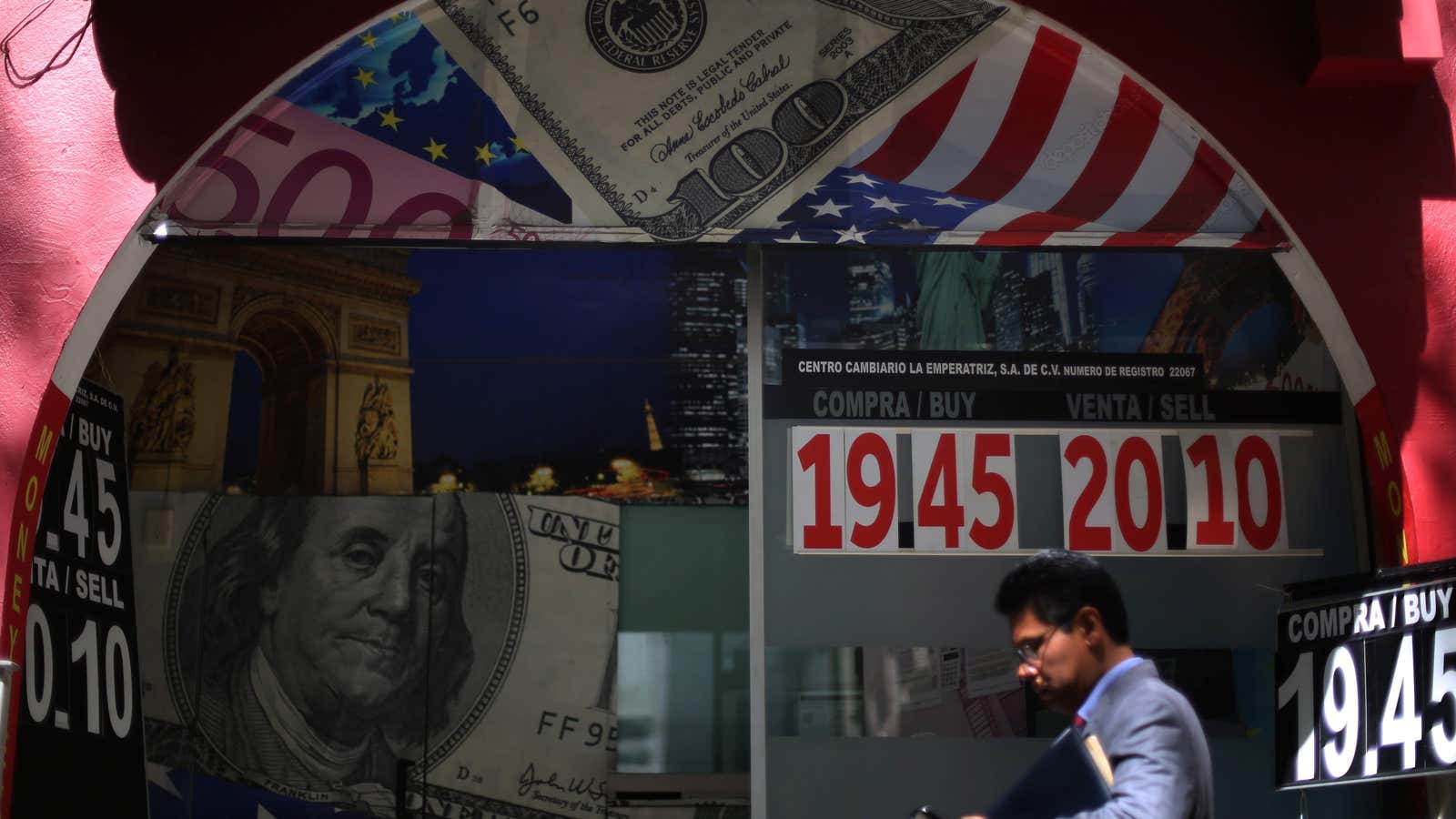The election of Donald Trump turned the Mexican peso into a symbolic—and hypersensitive—indicator of the threat the new US president posed to the interconnected global economy.
The value of the Mexican currency plummeted to a record low the day after the vote and in the following months continued to tumble with every Trump tweet about his plans for a border wall and import taxes.
But the peso’s current level now suggests Trump is much less dangerous than foreign exchange markets had anticipated; it has recovered to pre-Trumpian levels, and then some.
On June 6, the peso got a new boost after US and Mexican officials avoided a bitter trade dispute on sugar through an agreement. The currency traded as low as 18.24 pesos per dollar the day of the announcement—down from a high of nearly 22 pesos per dollar in January and more than 18.50 the day after the US election.
The peso had already rallied on June 5 after Mexico’s ruling party narrowly defeated its leftist opponent in a keystone state election. (Another Trump-induced fear is that his antagonistic rhetoric towards Mexico will fuel support for a populist politician who wants to run for president in 2018, Andrés Manuel López Obrador.)
As the peso strengthens, Trump’s popularity has moved in the opposite direction. Polls put the president’s disapproval ratings at roughly 56%, up from around 41% on inauguration day. In some ways, Trump’s woes could be good news for Mexico, because they might signal that his administration won’t be effective enough to make good on his threats—for example, building a border wall. Trump has also learned that some of his positions, such as tearing up the North American Trade Agreement, ultimately weren’t that popular with members of his own party, forcing him to backtrack.
On Tuesday, US commerce secretary Wilbur Ross’s message at a press conference announcing the sugar deal was also encouraging for the peso. He suggested the two countries’ willingness to hammer out a trade compromise bodes well for the renegotiation of the North American Free Trade Agreement, or NAFTA, which could start as early as mid-August. Given his boss’s hostile negotiation style, however, there probably are more Trump-inflicted swings in store for the peso.
